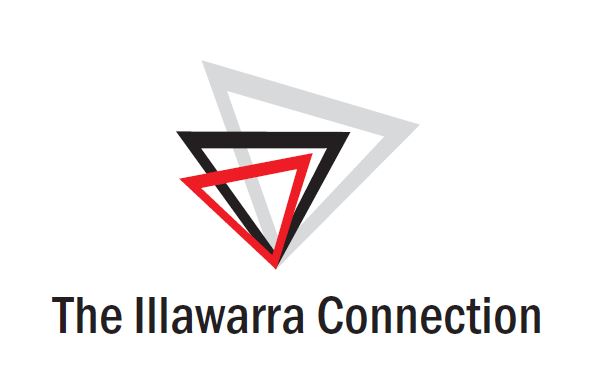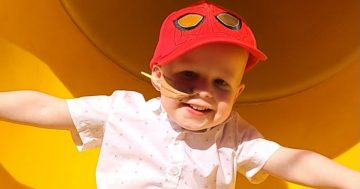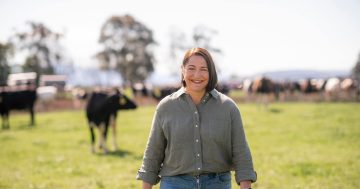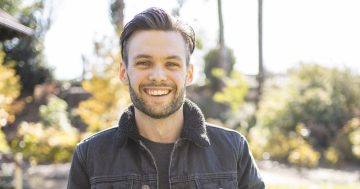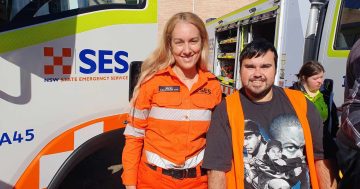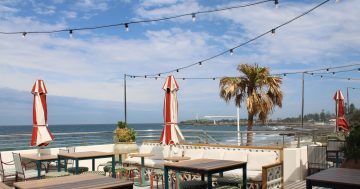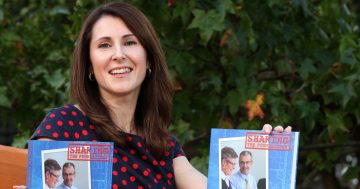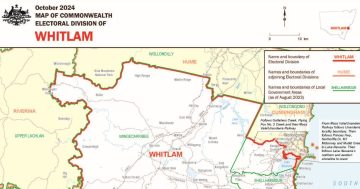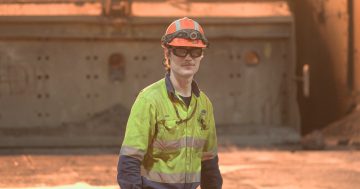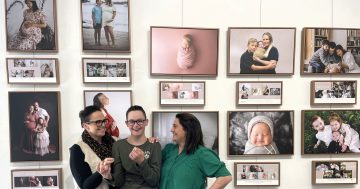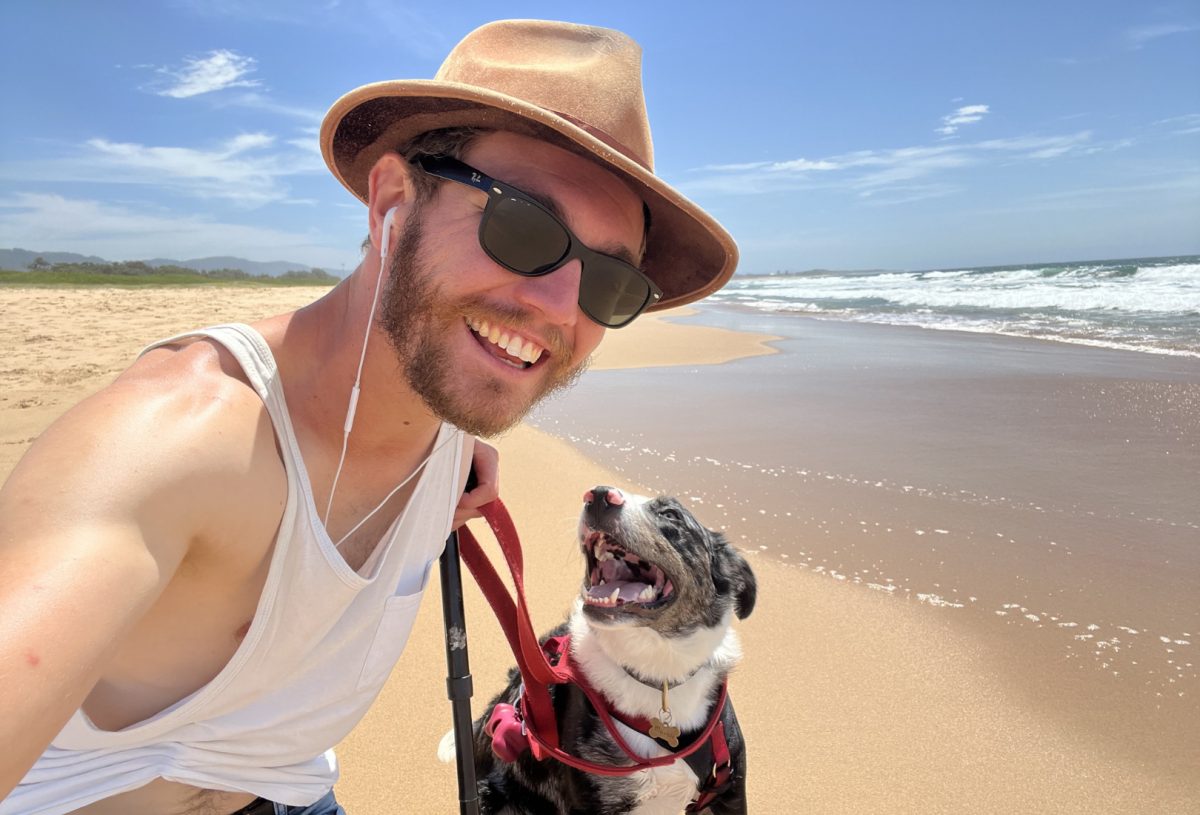
Ben Oakley with his assistance dog in training, his “rock” Marble. Photos: Supplied.
After managing the pain of a physically debilitating illness daily since his teen years, Illawarra’s Ben Oakley is now “desperately waiting for the call” to undergo a first-of-its-kind surgery in Australia for a rare brain tumour.
While the inspiring 28-year-old has always been the one giving to others through charities and campaigns, he admits it now “feels foreign” asking for support through a fundraising page to assist with treatments and ongoing therapy not covered by his NDIS plan.
Since age 17, Ben has dealt with debilitating nerve pain and body spasms, which were attributed to stiff persons syndrome (SPS).
However, since being diagnosed with the rare brain disease, dysembryoplastic neuroepithelial tumour (DNET) in 2022, doctors are not 100 per cent sure as to the diagnosis of SPS.
“What is 100 per cent certain is the fact there is a known brain tumour and until that has been addressed surgically, everything is up in the air and awaiting a full reassessment,” Ben said.
“This is extremely challenging to deal with on a daily basis, but all I can do is focus on pushing my body forward and keeping it moving.
“My rehab team and I would hate to imagine how bad it would be if I were to stop.
“As exhausting as it is to have six appointments weekly and workout daily, it’s what’s needed to have a fighting chance.”
About six months prior to the DNET diagnosis, he started having different kinds of episodes, from a full body spasm but being able to squeeze a hand or blink his eyes, to more of a tonic-clonic seizure and not being able to respond at all.
“It’s like the lights are on but nobody is home,” he said.
“I can’t even begin to express how terrifying that is.
“There have been multiple times where I genuinely thought, ‘This is it’.”
Ben had two major incidents two days apart in June 2022, which saw him being rushed to Wollongong ED and taken into resus.
“This was a first for me – it was bloody terrifying,” he said.
Shrugged off as being part of his SPS, Ben and his family pushed back, insisting it wasn’t normal.
“Thank God we did, because on 17 August 2022 I was diagnosed with an 18 to 20 mm dysembryoplastic neuroepithelial tumour in the front left lobe of my brain,” he said.
Since then he’s developed an array of new symptoms, including a floater in his right eye, hypersensitive eyes, intense headaches, tinnitus, hypersensitivity to temperature change, lack of feeling in his bladder resulting in incontinence, memory loss, stage 1 and 2 high blood pressure, vertigo, elevated and irregular heart rate and the list goes on.
Ben is now preparing to undergo laser interstitial thermal therapy (LITT) surgery, which has yet to be performed in Australia.
“The LITT procedure is a game-changing surgery,” he said.
“It’s less invasive and minimises the risk for permanent life altering side effects in comparison to a craniotomy.
“I was told by my surgeon that the LITT procedure is my only chance of living a decent quality of life, as a craniotomy would leave me permanently disabled till the day I die.
“The equipment has only just been commissioned as of March at Westmead Hospital, of which Dad and myself were involved in discussions with the NSW Government to get up and running.
“I am desperately waiting for the call.”
Prior to the DNET diagnosis and despite a debilitating illness, Ben said he was living his best life, being on the edge of completing a bachelor’s degree, connecting with friends, doing rehab and planning for the future.


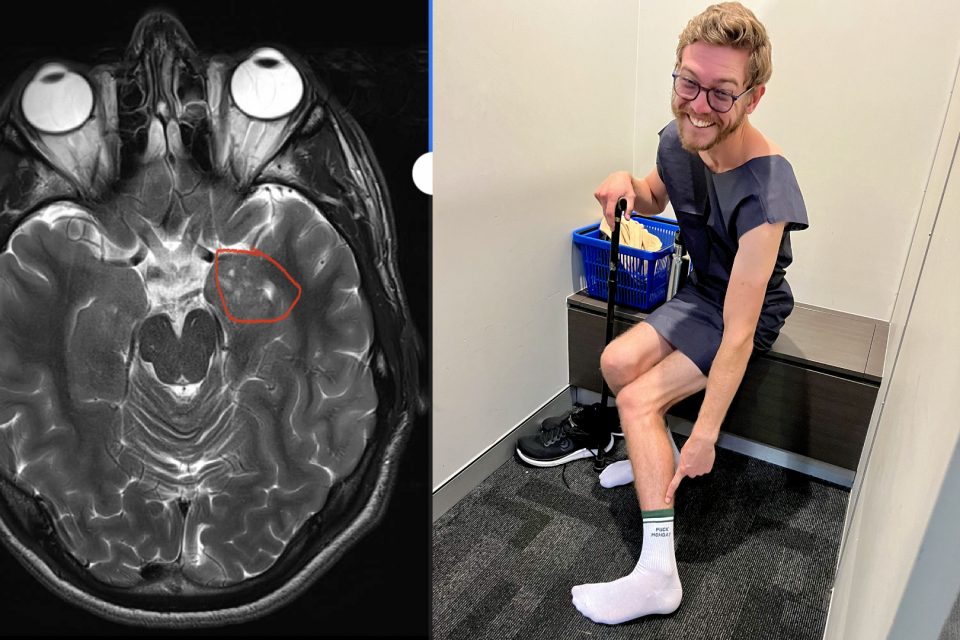
“I felt like I was finally moving in the right direction, or at least as good as I could given the situation,” he said.
“Whenever I got invited to anything, despite the pain I always tried to get out and be involved.
“Ever since the diagnosis, it has certainly turned my life upside down.
“I barely get out, other than for rehab; I’m constantly missing out on living my life and being surrounded by my friends and family due to how difficult it has become.”
He said he’d gone from being an extrovert to an introvert.
“It deeply saddens me because I fought so incredibly hard for my independence and it’s slowly dwindling left, right and centre,” he said.
The seed for that independence started in 2014, when Ben and his father Michael set up the Facebook page, Roll on Ben Oakley, as a hub for the pair to communicate with friends and family.
However, it soon branched into educating, pushing for change and a place to give back to those who supported him and his family over the years.
Ben admitted that going from a sheltered life to having a public platform with thousands of followers at times felt uncomfortable, but he was humbled and grateful for the support, without which they wouldn’t have achieved all they had.
The pair also set up not-for-profit charity for rare conditions, Drop A Dollar, to not only raise funds for medicinal cannabis research but also to educate people about rare diseases.
It led to him becoming a patient advocate for medicinal cannabis and disabilities, taking his story to state and federal parliaments and media, all while being afraid of public speaking.
“We pushed for legislation changes in state and federal parliaments, we spoke at at least 50 conferences and hosted an event showcasing A Life Of Its Own documentary, which included several experts from the Lambert Institute,” he said.
“Our aim is to raise enough funds to help fund research into more effective treatment options regarding the use of medicinal cannabis, as it’s not only saved my life but it’s given me a life.”
Ben did all this while undergoing intensive rehab and his degree, which begs the question: What it is that allows him to achieve all this despite the challenges life throws at him?
He laughs.
“Insanity, nah, I’ve always been a driven person, always pushing myself regardless of my health,” he said.
“It definitely has been a lot to take on over the years, certainly challenged my health, but I feel it has also been quite rewarding, a sense of accomplishment if you’d say.”
While Ben admits to being a “giver, not a taker”, he’s now chosen to ask for financial help from the public.
“I’ll be honest, having to ask for help is exceptionally hard; it’s something I’ve always struggled with,” he said.
Money given so far has covered doctors’ appointments, tests, medications, dental work and vet bills for his assistance dog in training and “rock”, Marble.
“The generosity of people astounds me. Words simply cannot express how grateful I am for all the support.”
To donate, visit his fundraising page and follow his journey on Facebook.








